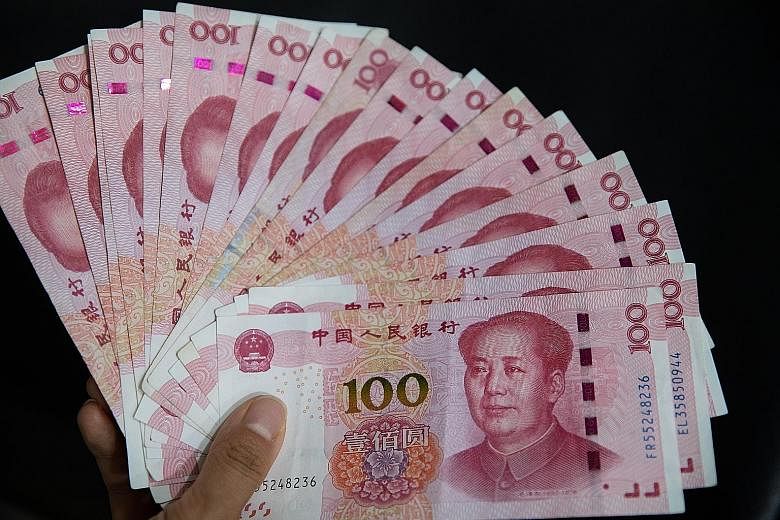Most South-east Asian stock markets slipped yesterday, with Thailand losing the most, as fresh fears over the trade war soured investor sentiment.
The White House is delaying a decision on licences for United States companies to restart business with Huawei Technologies after China stopped buying American farming goods, Bloomberg reported on Thursday.
This "dimmed the lights considerably while providing yet another stark reminder that markets are embroiled in a very testy trade war escalation", said Mr Stephen Innes, managing partner at VM Markets, in a note to clients.
Adding to the gloom, China's factory gate prices last month fell for the first time in nearly three years, though consumer inflation rose more than expected.
Thai shares fell 0.9 per cent, hurt by financials and industrials, and posted a loss of 2 per cent for the week. Siam Commercial Bank dropped 1.1 per cent, while Airports of Thailand lost 1.8 per cent.
Philippine shares closed 0.8 per cent lower, dragged down by industrials, and posted a weekly drop of 3.4 per cent. JG Summit Holdings declined 4.5 per cent, while International Container Terminal Services shed 3.5 per cent.
Indonesian shares advanced slightly, helped by banking and resources stocks.
Bank Central Asia rose 1 per cent, while Chandra Asri Petrochemical was up 2.5 per cent.
An index of Jakarta's 45 most liquid stocks gained 0.1 per cent.
Singapore was closed for the National Day public holiday.
Meanwhile, Beijing stocks fell victim to another round of selling.
Capping a torrid week for financial markets marked by worries that China was using its currency to avenge US tariffs and several central banks cutting rates more than anticipated, the MSCI's index of developing world stocks was set to book a weekly loss of nearly 2 per cent, its third straight week in the red.
Shanghai-listed shares closed down less than 1 per cent. The Chinese yuan, which officials let fall past the key seven-per-dollar mark earlier this week, was last down 0.14 per cent.
"We doubt that higher tariffs on Sept 1 can be avoided. While this is likely mostly priced in, China will probably retaliate," Citi analysts wrote in a note.
"And this is not fully priced, just because there are so many options of what China could do. We also doubt that China is going to stop letting CNY (the yuan) depreciate."
However, other Asian heavyweights, including South Korea's Kospi and Taiwan's main stock index, all rose after being in the red for most of this week.
Indian stocks also jumped on a report that the government might exempt foreign portfolio investors from an increase in taxes.
Global equities are ending the week still struggling to recoup Monday's plunge amid ongoing trade worries and concern that China may continue allowing its currency to weaken.
The pound weakened versus the dollar after data showed Britain's economy shrank for the first time in more than six years in the second quarter. Treasuries ticked higher alongside gold, which traded just above US$1,500 per ounce.
REUTERS, BLOOMBERG

